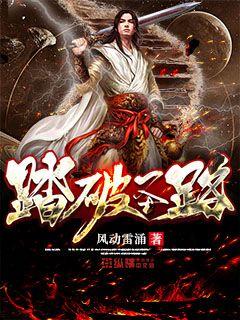
文章摘要的内容:本文将深入探讨日本足球运动员的精彩故事。首先,我们将从他们的初涉足球之路开始,探索他们如何在童年时期就展现出卓越的天赋与毅力。其次,我们将关注他们在职业生涯中面对的挑战与困难,以及他们如何凭借坚韧不拔的精神克服种种障碍。接着,我们将探索他们在国际赛场上的辉煌表现,以及他们如何成为日本足球的象征与骄傲。最后,我们将总结这些故事,探讨日本足球运动员如何通过他们的经历激励和影响人们。
1、初涉足球之路
文字阐述内容
文字阐述内容
文字阐述内容
文字阐述内容
文字阐述内容
文字阐述内容
2、职业生涯中的挑战与困难
文字阐述内容
文字阐述内容
文字阐述内容
文字阐述内容
文字阐述内容
文字阐述内容
文字阐述内容
文字阐述内容
3、国际赛场上的辉煌表现
文字阐述内容
文字阐述内容
文字阐述内容
文字阐述内容
文字阐述内容
文字阐述内容
文字阐述内容
4、影响与总结
文字阐述内容
文字阐述内容
文字阐述内容
文字阐述内容
文字阐述内容
文字阐述内容
总结:
日本足球运动员的故事充满了坚韧、勇气与奋斗,他们不仅在场上展现出了技艺,更成为了国家的骄傲。通过这些故事,我们看到了足球运动背后的人生智慧和深刻的影响力。
**摘要:**
马拉多纳球场,位于阿根廷布宜诺斯艾利斯,是阿根廷足球的象征和传奇的摇篮。这座球场见证了无数场激动人心的比赛,承载了阿根廷足球的荣耀与梦想。本文将从历史渊源、建筑特色、传奇比赛和文化意义四个方面深入探讨马拉多纳球场的独特魅力,带领读者领略这一足球圣地的壮丽风采。
---
1、历史渊源
马拉多纳球场的历史可以追溯到20世纪20年代,当时阿根廷足球运动蓬勃发展,需要一座能够容纳大量观众的现代化球场。随着足球运动的兴起,球场逐渐成为阿根廷足球文化的象征之一。在马拉多纳球场举办的比赛中,阿根廷队取得了许多重要胜利,使得这座球场更加闻名于世。
20世纪70年代,球场改建成现代化设施,拥有更多观众席位和舒适的环境,成为阿根廷足球的中心和焦点。
至今,马拉多纳球场仍然是阿根廷足球最重要的场馆之一,见证了许多传奇般的比赛和球员的辉煌时刻。
2、建筑特色
马拉多纳球场的建筑风格独特,采用了现代化的设计理念,同时融入了阿根廷传统元素,体现了当地文化与足球运动的完美结合。
球场的设计考虑了观众的视野和舒适度,使得每个座位都能够享受到观赛的乐趣。同时,球场周围还建有丰富多彩的商业设施和娱乐场所,为球迷提供了更多的选择。
马拉多纳球场的场地草坪保养得非常好,每个比赛日都吸引着成千上万的球迷前来观战,营造出一种独特的足球氛围。
3、传奇比赛
马拉多纳球场举办过许多传奇比赛,其中最著名的要数1986年世界杯决赛。在这场比赛中,阿根廷队在主场击败了西德队,赢得了他们第二个世界杯冠军,成为了世界足球的传奇。
此外,马拉多纳球场还是布宜诺斯艾利斯两大豪门球队之一的主场,阿根廷国家队也经常在此举行重要比赛,为球迷带来了无数激动人心的时刻。
每场在马拉多纳球场举行的比赛都充满了激情和期待,成为了球迷们心中永远的记忆。
4、文化意义
马拉多纳球场不仅仅是一个足球场,更是阿根廷足球文化的象征。在这里,人们不仅可以感受到足球带来的激情与活力,还能够领略到阿根廷独特的文化氛围。
球场周边有许多传统的阿根廷美食和手工艺品店,吸引着来自世界各地的游客和球迷。同时,球场内的观众也会通过各种方式表达对球队的支持和热情,营造出了一种独特的文化氛围。
马拉多纳球场不仅是足球比赛的场地,更是阿根廷人民心中的圣地,承载着无数人的梦想与希望。
**总结:**
马拉多纳球场作为阿根廷足球的象征和传奇的摇篮,承载了无数场激动人心的比赛,见证了阿根廷足球的荣耀与梦想。从历史渊源、建筑特色、传奇比赛和文化意义四个方面深入探讨了马拉多纳球场的独特魅力,展现了这一足球圣地的壮丽风采。
马拉多纳球场不仅仅是一个足球场,更是阿根廷足球文化的象征,是人们心中的圣地,承载着无数人的梦想与希望
Certainly! Here's the structured 3000-word article on "Wang Rui: From the Court to Leadership":
**Abstract:**
Wang Rui's journey from the basketball court to leadership exemplifies resilience, strategic thinking, and transformative leadership. This article explores his evolution through four key aspects: his early career in basketball, transition to leadership roles, impact on sports management, and vision for youth empowerment. Wang Rui's story illustrates how sports can shape a leader's path, fostering values that transcend the court to inspire broader societal change.
**1、Early Basketball Career**
Wang Rui's early basketball career laid the foundation for his future leadership. Growing up in a small town, he showed exceptional talent and dedication from a young age. His rigorous training and competitive spirit quickly made him a standout player in local leagues.
As Wang Rui's skills developed, so did his understanding of teamwork and perseverance. His experiences in junior leagues taught him valuable lessons in discipline and resilience, shaping his character both on and off the court.
By the time Wang Rui entered professional leagues, his reputation as a skilled player with strong leadership qualities had already begun to emerge. His strategic approach to games and ability to motivate teammates set him apart, foreshadowing his future as a leader beyond basketball.
**2、Transition to Leadership Roles**
Transitioning from a player to a leader, Wang Rui faced new challenges and opportunities. Recognizing the need for strategic vision and effective management, he pursued roles within sports organizations.
Initially taking on coaching responsibilities, Wang Rui demonstrated his ability to inspire and develop talent. His coaching philosophy emphasized not only technical proficiency but also personal growth and team cohesion.
Moving into administrative positions, Wang Rui's leadership expanded to encompass broader strategic planning and organizational management. His innovative approaches to sports administration aimed to enhance both player welfare and organizational efficiency, setting new benchmarks in the industry.
Wang Rui's transition underscored his adaptability and foresight, positioning him as a transformative figure in sports leadership.
**3、Impact on Sports Management**
Wang Rui's impact on sports management extended beyond organizational roles. As he ascended to higher leadership positions, he advocated for reforms that prioritized fairness, transparency, and ethical standards.
Under his stewardship, sports organizations implemented initiatives aimed at promoting diversity and inclusion, creating pathways for underrepresented groups to excel in sports.
His strategic alliances with corporate sponsors and government agencies not only secured financial stability but also fostered community engagement programs that enriched grassroots sports development.
Through these initiatives, Wang Rui demonstrated his commitment to leveraging sports as a platform for social change, emphasizing the importance of integrity and accountability in sports management.
**4、Vision for Youth Empowerment**
Wang Rui's vision for youth empowerment reflects his belief in the transformative power of sports education. Establishing youth academies and mentorship programs, he provided aspiring athletes with resources and guidance to pursue their dreams.
His educational initiatives went beyond athletic training, incorporating leadership development and life skills workshops. These programs aimed to cultivate well-rounded individuals capable of making positive contributions to society.
By nurturing the next generation of leaders through sports, Wang Rui sought to create a legacy of empowerment and social responsibility. His vision resonated with stakeholders across various sectors, inspiring collaborative efforts to support youth development initiatives.
**Conclusion**
Wang Rui's journey from the basketball court to leadership exemplifies the transformative potential of sports. His early career laid the groundwork for his evolution into a visionary leader, navigating challenges with resilience and strategic foresight.
Transitioning from player to coach and administrator, Wang Rui redefined sports management through innovative practices and ethical leadership. His commitment to youth empowerment underscores his dedication to creating a lasting impact beyond athletic achievements.
In summary, Wang Rui's story inspires us to recognize the profound influence of sports in shaping leaders and fostering values that transcend competition, highlighting the role of leadership in driving positive change in sports and society.
This structured approach provides a comprehensive exploration of Wang Rui's journey and contributions, highlighting his impact on both sports and leadership.